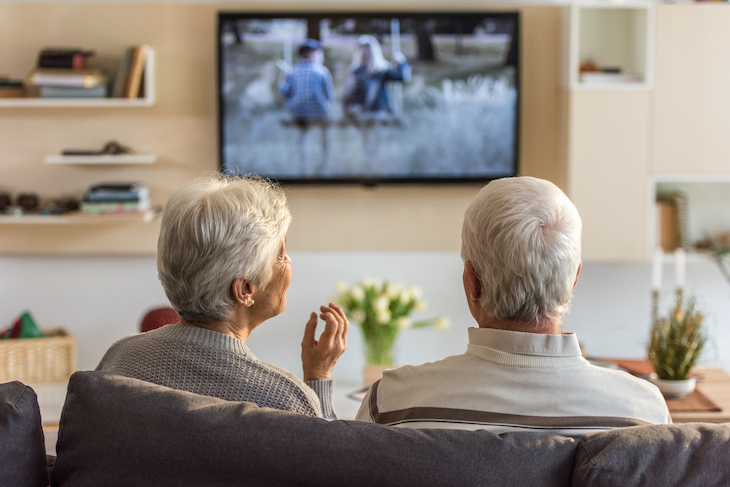Dorothy Byrne, Channel 4’s head of news, last week told the Edinburgh television festival: ‘Here is what we all need to decide: what do we do when a known liar becomes our prime minister?’ Yet she is surprised when Boris Johnson and Jeremy Corbyn — both of whom she calls ‘cowards’ — do not come on her programmes. She regards it as their democratic duty to be interrogated by her journalists. If you watch her deliver her lecture, you can see she is positively proud of her character assassination of both men. It does not seem to cross her mind that she is breaking her public service obligation of fairness, and therefore has no moral hold on them. Broadly speaking, it is the duty of elected politicians to explain themselves to the public. Therefore they should deal with the media. It does not follow that they must appear on shows run and staffed by people who are trying to destroy them. Ms Byrne compares Johnson and Corbyn unfavourably with Mrs Thatcher (‘I never thought I would hear myself say this’), who allowed herself to be grilled in long, often hostile interviews. What she forgets is that, in the 20th century, British politicians had little choice. There was a maximum of four channels, all of which (even Channel 4) commanded, by modern standards, huge audiences. Leaders who avoided them silenced themselves. This is no longer the case. It is entirely possible nowadays to have a successful political career without ever entering a Channel 4 or even a BBC studio for a formal set-piece interview. There are hundreds of less unfair outlets. The public service broadcasters failed, in the current buzz-phrase, to ‘check their privilege’, so now they are deservedly losing it.
Which brings me to the question of television licences for the over-75s. Tough though the licence fee will be on this group when the BBC re-imposes it, it is (with exceptions that will be allowed for) perfectly justified. Old people are the biggest consumers of terrestrial television, so if we preserve the iniquitous system of the compulsory licence, they should pay it. Because they have been deprived of money-power by getting free licences, the old are ignored as an audience by the BBC, which is desperately — and largely unsuccessfully — courting the young. Now the old will be able to assert themselves, and if they do not get more of what they want, they can leave. Once most people over 75 have to pay the £154.50 annual fee, a great many will learn from their grandchildren how to avoid this, and settle down to a contented old age of Netflix, radio, social media, books, newspapers and The Spectator.
What is true, however, is that the return of the licence fee will bring a new terror to old age — the unpleasant and untruthful threats you will receive from TV Licensing if you do not possess a TV licence. Unpleasant, because these messages assume your guilt. Untruthful, because they strongly imply that their officers have the right to enter and search your home. They have no such right. I have no television licence at our flat in London (because I have no television), and have received 69 threatening letters, many telling me to expect an inspector’s visit on a certain date, over the past five years. I have never answered any of them, and am still at large. If a licence inspector calls, wave your zimmer frame menacingly at him and refuse to open the door.
This article is an extract of Charles Moore’s Spectator Notes, available in this week’s magazine.







Comments